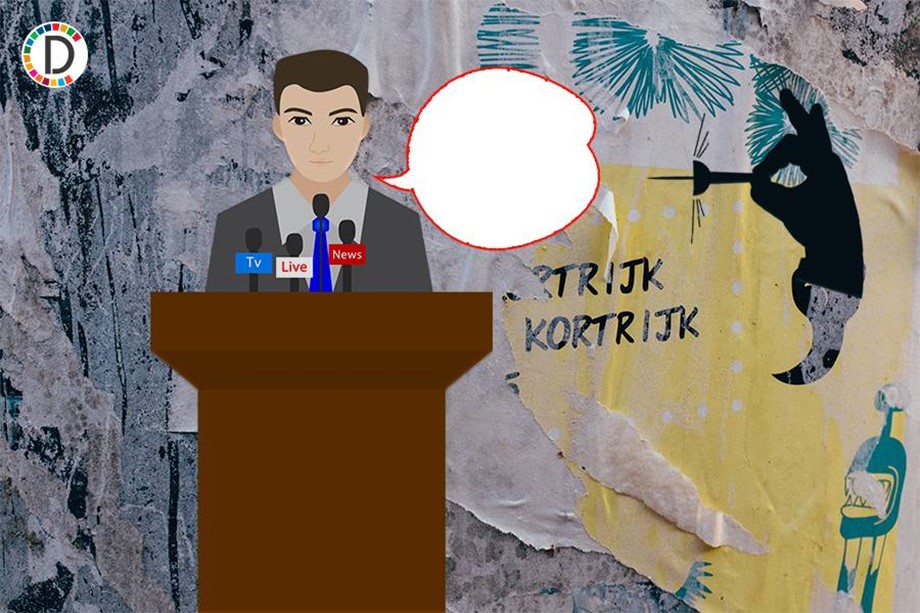As the counting of the midterm elections in the United States continues, it is clear that women’s rights activism is reaching more people than ever before. Both online and offline, the poll, seen by some as a de facto referendum on abortion, rallied women to stand up for their rights. But even as the online campaign rallied women, it also rallied anti-feminists and misogynists. And, like feminists, the online pontifications of misogynists can have a direct influence on politics, especially far-right movements.
The Italian elections were recently won by the Brothers of Italy with 26% of the vote. The far-right party drew inspiration from fascist ideologies, which made anti-feminism a central tenet. Although its leader, Giorgia Meloni, is Italy’s first female prime minister, she is often labeled an anti-feminist and has attended conservative Christian events opposing same-sex marriage and abortion. In Spain, the far-right Vox party adopted a similar basic ideology. And Russian President Vladimir Putin’s annexation speech clearly referenced gender ideology and accused the West of being unable to uphold traditional gender roles.
These beliefs echo the “manosphere,” misogynistic websites that often lurk on the dark web and advocate for men’s rights, originally a 1970s movement against second-wave feminism. For example, the red pill philosophy takes its name from a plot in the movie “Matrix” and claims that women are not really oppressed in society. Involuntary celibates, or incels, blame women for rejecting them and only wanting conventionally attractive sexual partners. And pickups trade dating advice in a way that dehumanizes and demeans women.
What these groups have in common is the belief that the true “victims” of society are straight white males. Many feel they can no longer be assured the role of head of household, and their lives have been ruined by #MeToo, a global movement exposing sexual violence and harassment against women that took off in 2017. Some also reject the feminism to protect the traditional idea of a nuclear family – characterized by a mother, father and children – with the man being the breadwinner and the woman doing the housework and care. Some groups oppose women’s activism as well as LGBTQ+ rights, particularly in response to the legalization of same-sex marriage in North America and Europe between 2012 and 2013. Some of these movements claim that the ideology of gender is a left-wing conspiracy that wants to destroy gender identities. Groups such as the Italian Sentinelle in Piedi (Standing Watchman) and the French Manif Pour Tous (Demo for Everybody) are inspired by conservative Christianity. They tend to use social media due to a distrust of mainstream media and may have unconventional means of protest. Sentinel in Piedi, for example, organizes silent demonstrations where people stand in a square reading a book. While the ideology of these groups may seem less misogynistic than the narratives of the manosphere, what they have in common is a rejection of feminist activism in their effort to “protect” traditional heterosexual families.
Anti-feminist and misogynistic discourse online can have very harmful consequences outside of digital spaces. In 2014, Elliot Rodger, who identified as an Incel, killed six people and injured 14 to “punish” women for rejecting him.
Advocating for women as submissive partners and accepting motherhood at any cost are also forms of symbolic violence with harmful social consequences. For example, unsafe abortions can be deadly and more likely to occur when prohibited or restricted.
While the activism that has followed the growing visibility of #MeToo has made the topic of violence against women increasingly relevant, women’s rights and gender equality don’t always progress in tandem. Several U.S. states banned or restricted abortion in 2022, following the overturning of the landmark Roe v. Wade who protected the right to abortion in the first trimester. Even with the successes of the midterm elections, not all abortion rights have been restored. Sexual harassment against women online is a growing concern 21% of American women aged 18-29 say they have been sexually harassed online, as well as one in ten women in the European Union. Between a fifth and a quarter of female victims of online abuse have also been threatened with physical violence. To end violence against women, it is crucial to publicly denounce all online groups perpetuating misogynistic and anti-feminist views as hate speech. National governments can prevent them from reverberating offline by mapping them out and making them public with a warning to internet users about their dangers. Since online violence has often been linked and compared to offline violence, there is a need for better policies against online hate speech.
Several platforms, such as Meta, have guidelines to protect users from harassment and can intervene to block messages and groups, but perpetrators of hate speech online rarely face serious consequences, and there there must be better methods of policing at all levels. And despite the backlash from some men, the fight for women’s rights continues. International organizations can empower women through militant campaigns and, more importantly, provide them with safe spaces to speak out against violence.
(This story has not been edited by the Devdiscourse team and is auto-generated from a syndicated feed.)

